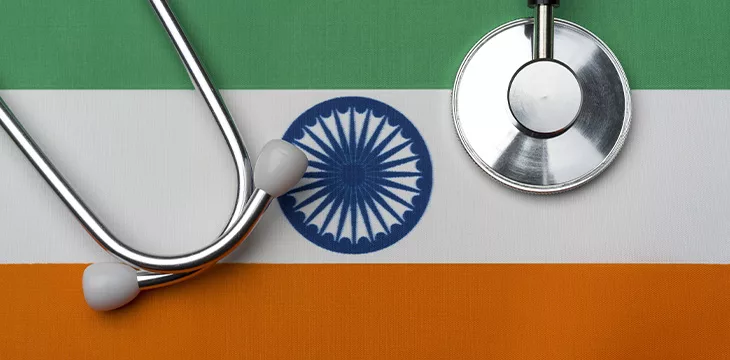|
Getting your Trinity Audio player ready...
|
Blockchain For Impact (BFI), a healthcare fund set up during the second wave of the COVID-19 pandemic in India, has tied up with the United Nations Children’s Fund (UNICEF) to strengthen public health practices.
The alliance, operating within the India District Full Stack Fund (IDFS) vertical of BFI, aims to advance public health services and collaborative problem-solving.
Under the partnership, $2.1 million will be reprogrammed to align with two projects, Blockchain for Impact said in a LinkedIn post.
The first project, reportedly an allocation of $900,000, is expected to reinforce the State Health Resource Center in the North Eastern state of Meghalaya to build capacity for solving complex public health challenges.
The second project, with an allocation of $1.2 million, is a pan-India health and climate resilience fellowship that is expected to boost state and ground partner capacity across as many as seven states in devising local solutions using human-centric design principles.
“By harnessing the power of human-centric design principles and grassroots-driven solutions, we’re embarking on a transformative journey to reshape the landscape of public health,” BFI said in a LinkedIn post.
The BFI has been actively collaborating with premier Indian institutions to advance healthcare in the world’s most populous country.
It recently alloted over $150,000, spread over three years, to develop programs for healthcare-focused startups at the Indian Institute of Technology Kanpur (IITK), a premier institute known for the highest standard of education in science and engineering. The collaboration aims to develop solutions that address critical gaps in India’s healthcare sector.
BFI also set aside $900,000 over three years to the Indian Institute of Technology Bombay, a premier institute in engineering and research, to accelerate biomedical research across India. It recently partnered with the Indian Institute of Science (IISc) to support select research projects in life sciences from the IISc faculty.
India’s healthcare industry has been spearheading technological advancements to enhance patient care while improving operations and data security. However, secure and efficient handling of patient data continues to be a challenge. Offering a secure platform for data management, blockchain technology has the potential to revolutionize healthcare services by creating a transparent and immutable ledger that curbs security breaches.
The use of blockchain technology can also enable the exchange of data between pharmaceutical companies and researchers, bolstering the discovery of new therapies and treatments.
According to a report by PwC, the Bengal Chamber, and Medica Hospitals, “Globally, healthcare organisations have started reaping the benefits of blockchain technology in terms of its various applications, such as in health data management, health information exchange, provider credentialing and accreditation, and pharmaceutical supply chain management.”
“[The] Adoption of blockchain technology by the Indian healthcare industry will happen over a period of time as the effectiveness and sustainability of each use case are currently under research and development. At the same time, healthcare organisations need to undertake the necessary planning activities before entering into blockchain-based partnerships and programmes,” the report said.
Watch: Exploring use cases for blockchain in India

 02-27-2026
02-27-2026 




